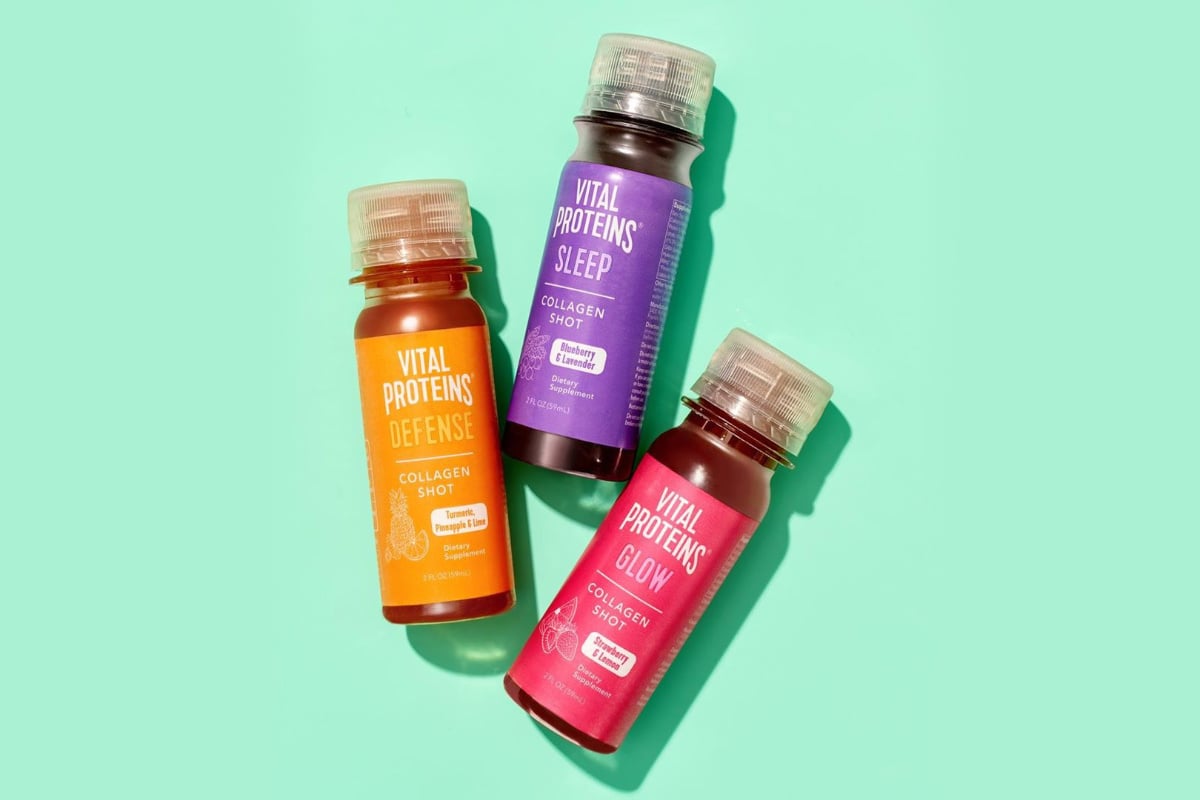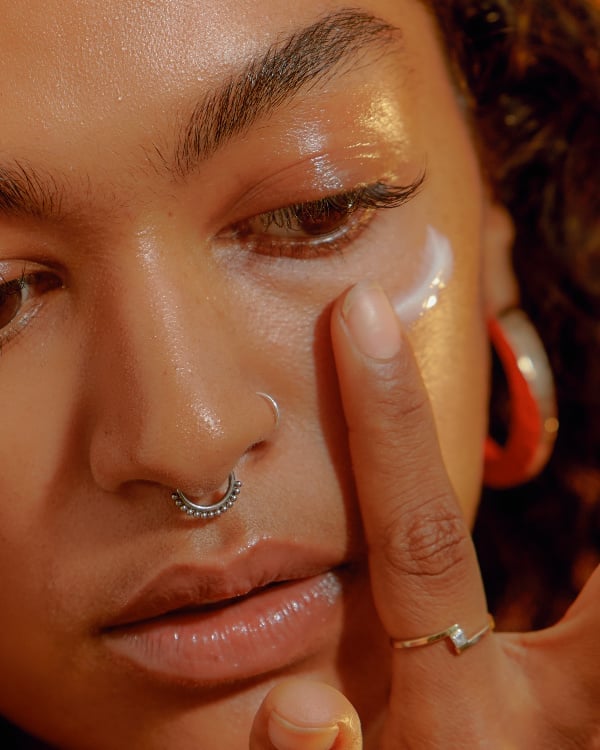
Stroll down the aisles of your local supermarket or servo and you’ll find a collagen product promising to make your skin glow and your gut as clean as the day you were born.
No, we’re not talking about the collagen powders you might’ve seen people drinking on Instagram. Today, we’re talking about ready-made collagen waters, drinks, protein bars, balls, and even shots.
These products come in bright packaging and with a list of benefits ranging from brighter, younger-looking skin and cleansed insides, to stronger hair and nails – all in a convenient, yummy, on-the-go treat. But are they legit, or a load of crap?
We asked the experts to find out everything you need to know about collagen drinks and snacks, from what collagen actually does (yes, it does do something), to whether these hyped products meet their claims.
Before we get into it, here’s some helpful tips to improve your skin while you snooze. Post continues after video.
What is collagen?
Before we get into collagen drinks, snacks and supplements, what the heck is collagen and why would you want to get it into you?
